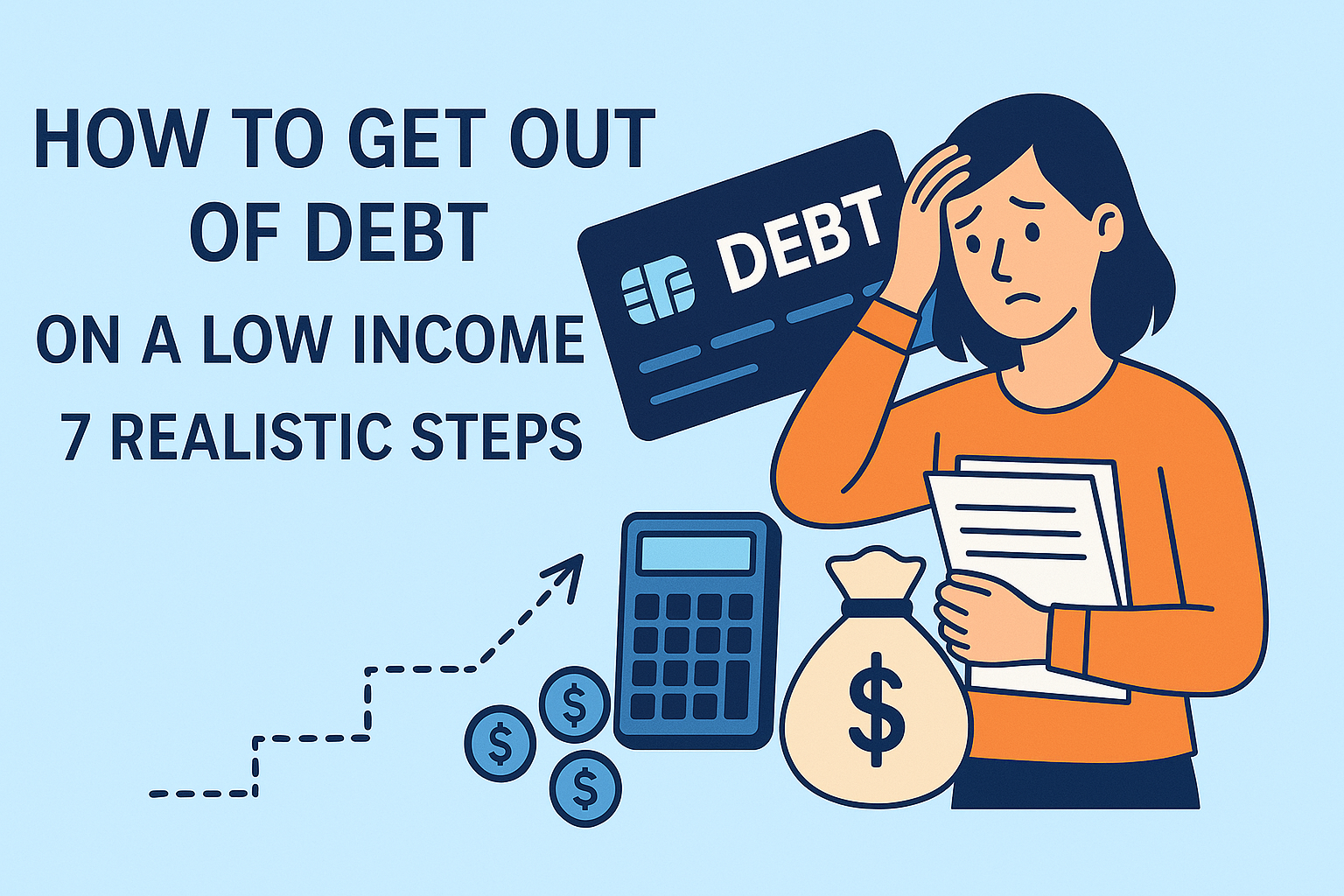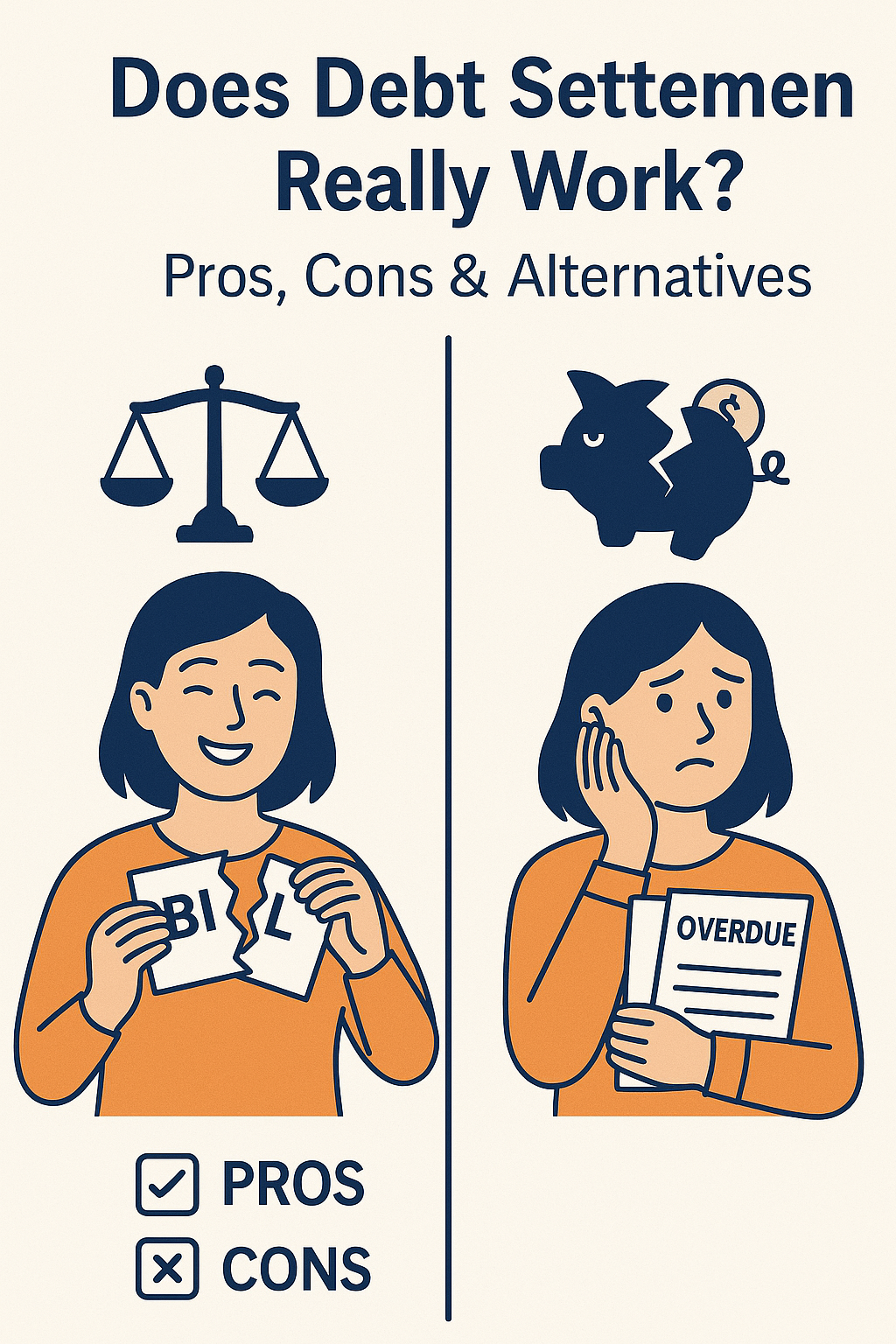How to manage debt effectively is a crucial skill that can significantly impact your financial health and peace of mind. Whether you’re dealing with student loans, credit card balances, medical bills, or personal loans, having a clear strategy to handle debt is essential.
In this guide, you’ll learn how to manage debt effectively with 10 practical, actionable tips that can help you reduce your debt burden, regain control, and work toward financial freedom.
Table of Contents
-
Understanding the Importance of Debt Management
-
How to Assess Your Current Debt Situation
-
10 Practical Tips on How to Manage Debt Effectively
-
3.1 Create a Realistic Monthly Budget
-
3.2 List and Prioritize Your Debts
-
3.3 Use the Debt Snowball Method
-
3.4 Consider the Debt Avalanche Method
-
3.5 Negotiate Lower Interest Rates
-
3.6 Explore Debt Consolidation Options
-
3.7 Avoid Taking on New Debt
-
3.8 Build an Emergency Fund
-
3.9 Track Your Progress Regularly
-
3.10 Seek Professional Help When Needed
-
-
Common Mistakes to Avoid
-
How to Stay Motivated During Debt Repayment
-
FAQs About Managing Debt
-
Conclusion
1. Understanding the Importance of Debt Management
Debt, when left unmanaged, can lead to financial stress, damaged credit, and limited opportunities. But learning how to manage debt effectively empowers you to:
-
Improve your credit score
-
Save money on interest
-
Reduce financial anxiety
-
Work toward long-term goals like homeownership or retirement
Effective debt management is not about quick fixes—it’s about consistent, intentional steps.
2. How to Assess Your Current Debt Situation
Before you can manage debt effectively, you need a clear picture of your finances.
Steps:
✔ List all debts: Include balances, interest rates, and minimum payments.
✔ Review your credit reports from AnnualCreditReport.com.
✔ Calculate your Debt-to-Income (DTI) ratio: Total monthly debt payments ÷ gross monthly income.
Understanding where you stand is the first step in learning how to manage debt effectively.
3. 10 Practical Tips on How to Manage Debt Effectively
3.1 Create a Realistic Monthly Budget
Budgeting is foundational when figuring out how to manage debt effectively.
✔ Track income and expenses
✔ Allocate funds for necessities, debt repayment, and savings
✔ Cut non-essential spending
Tools like Mint or YNAB can help.
3.2 List and Prioritize Your Debts
Organizing your debts helps you create a clear repayment plan.
✔ Rank debts by interest rate or balance
✔ Pay minimums on all debts
✔ Focus extra payments on the top-priority debt
This step helps you manage debt effectively by providing structure.
3.3 Use the Debt Snowball Method
With the Debt Snowball Method, you pay off the smallest debts first for quick wins.
How it works:
-
Pay minimums on all debts
-
Put extra funds toward the smallest balance
-
Once paid off, roll that payment into the next smallest debt
This method builds momentum and motivation for those learning how to manage debt effectively.
3.4 Consider the Debt Avalanche Method
The Debt Avalanche Method targets high-interest debts first to minimize total interest paid.
Steps:
✔ Make minimum payments on all debts
✔ Direct extra funds toward the debt with the highest interest rate
✔ Continue until all debts are eliminated
If your goal is to save money long-term, this is an excellent strategy to manage debt effectively.
3.5 Negotiate Lower Interest Rates
Lowering interest rates reduces the overall cost of your debt.
✔ Contact your credit card companies or lenders
✔ Request lower rates based on good payment history
✔ Consider balance transfer offers cautiously
Small interest reductions can make a big difference when working to manage debt effectively.
3.6 Explore Debt Consolidation Options
Debt consolidation combines multiple debts into a single, more manageable payment.
Options include:
-
Personal loans
-
Balance transfer credit cards
-
Home equity loans (if applicable)
Debt consolidation simplifies payments, often with lower interest rates, helping you manage debt effectively.
3.7 Avoid Taking on New Debt
Resist the temptation to take on new debt while paying off existing balances.
✔ Avoid unnecessary credit card use
✔ Delay large purchases
✔ Focus on paying down current obligations
New debt undermines your efforts to manage debt effectively.
3.8 Build an Emergency Fund
Unexpected expenses can derail your debt repayment plan.
✔ Aim for at least $500–$1,000 initially
✔ Gradually build to 3–6 months’ expenses
✔ Keep the fund in a separate, accessible savings account
An emergency fund provides a safety net, making it easier to manage debt effectively.
3.9 Track Your Progress Regularly
Seeing progress keeps you motivated and accountable.
✔ Review your budget monthly
✔ Celebrate small wins
✔ Adjust your strategy as needed
Regular check-ins ensure you stay on track with your goal to manage debt effectively.
3.10 Seek Professional Help When Needed
If your debt feels overwhelming, consider these resources:
-
Credit counseling agencies
-
Non-profit debt management programs
-
Financial coaches
Reputable help can make a big difference in your ability to manage debt effectively.
4. Common Mistakes to Avoid
While learning how to manage debt effectively, steer clear of these pitfalls:
✖ Only making minimum payments
✖ Ignoring high-interest debts
✖ Falling for debt relief scams
✖ Neglecting your credit score
✖ Not having a plan for emergencies
Avoiding these mistakes accelerates your journey toward financial freedom.
5. How to Stay Motivated During Debt Repayment
Managing debt is a marathon, not a sprint.
Tips to stay motivated:
✔ Visualize life without debt
✔ Celebrate milestones
✔ Surround yourself with supportive people
✔ Track how much interest you’ve avoided
✔ Remind yourself why you’re doing this
These practices help you stay focused on how to manage debt effectively, even when progress feels slow.
6. FAQs About Managing Debt
Is it better to pay off debt or save money first?
Aim to build a small emergency fund while making aggressive debt payments. After debt is under control, focus on saving.
Does debt consolidation hurt my credit?
There may be a temporary dip due to hard inquiries, but over time, proper consolidation can improve your score.
How long does it take to become debt-free?
It depends on your debt amount and repayment strategy. With consistency, many people make significant progress within 1–3 years.
Can I manage debt effectively with a low income?
Yes. Budgeting, prioritizing high-interest debts, and seeking assistance can help, regardless of income level.
7. Conclusion
Learning how to manage debt effectively is one of the most empowering steps you can take for your financial future. With a clear plan, discipline, and the right resources, you can:
✔ Reduce your debt
✔ Improve your credit score
✔ Save money on interest
✔ Reduce stress
✔ Work toward true financial freedom
Start small, stay consistent, and celebrate every step forward. You have the tools to take control of your debt—and your life.
Internal Links:
-
How to create a debt payoff plan
-
Best debt consolidation options in 2025
-
Building an emergency fund for beginners
DoFollow External Links:





Some truly interesting details you have written.Helped me a lot, just what I was searching for : D.
I do love the manner in which you have presented this specific concern and it really does present me a lot of fodder for thought. Nevertheless, from what precisely I have personally seen, I basically wish as the actual remarks pile on that individuals remain on issue and don’t start on a tirade involving the news du jour. All the same, thank you for this excellent point and although I do not necessarily agree with the idea in totality, I regard your viewpoint.